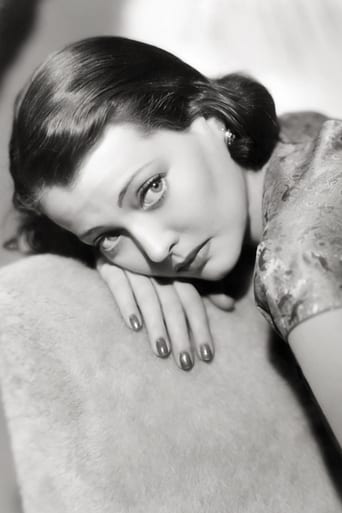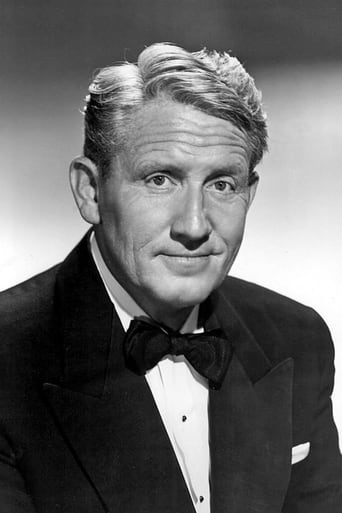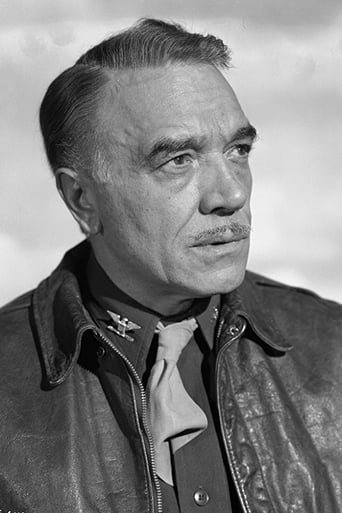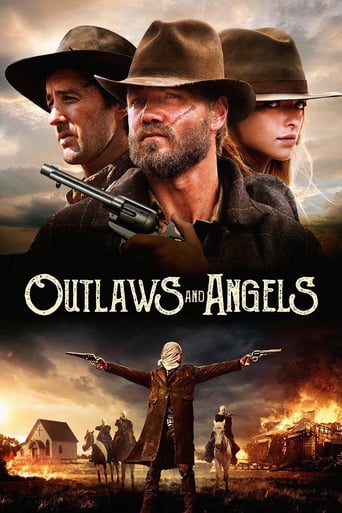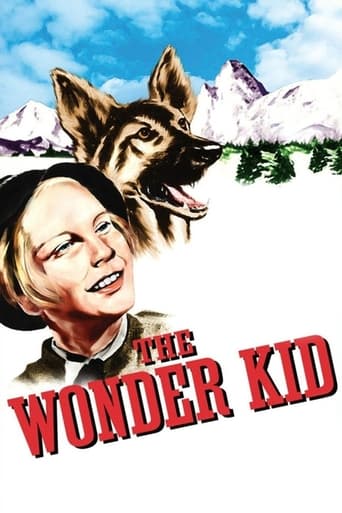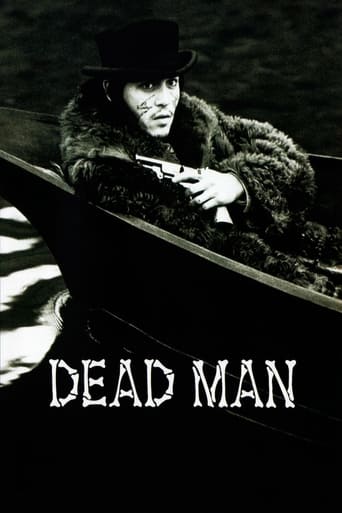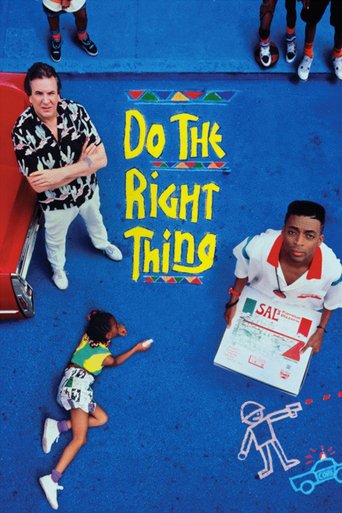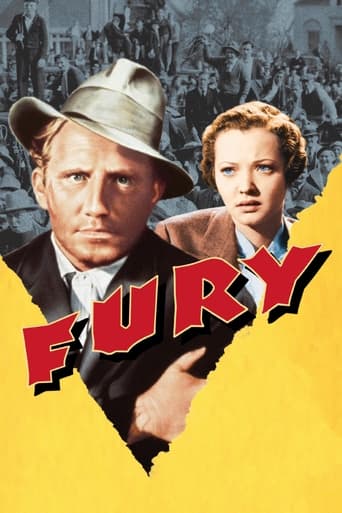
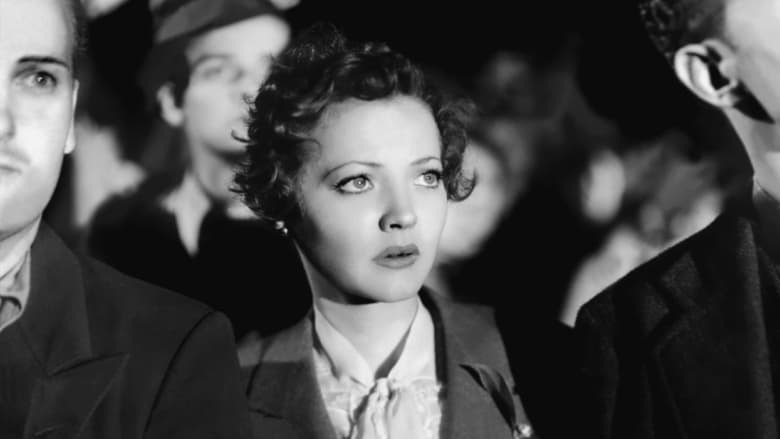
Fury (1936)
Joe, who owns a gas station along with his brothers and is about to marry Katherine, travels to the small town where she lives to visit her, but is wrongly mistaken for a wanted kidnapper and arrested.
Watch Trailer
Cast
Similar titles

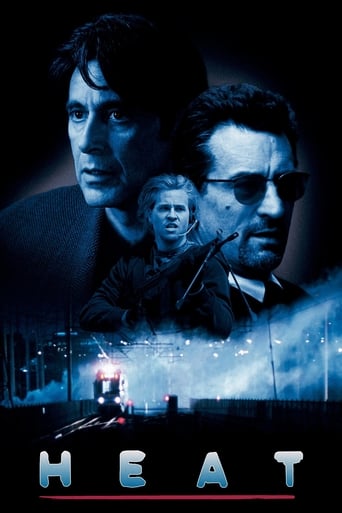

Reviews
Very very predictable, including the post credit scene !!!
The best films of this genre always show a path and provide a takeaway for being a better person.
I didn’t really have many expectations going into the movie (good or bad), but I actually really enjoyed it. I really liked the characters and the banter between them.
One of the film's great tricks is that, for a time, you think it will go down a rabbit hole of unrealistic glorification.
Fury (1936) A film that is about exceptions and is not quite exceptional by itself, though it's really good, and really interesting at every turn. And if you find the DVD that has the Bogdanovich commentary, that's actually eye opening just for all the Fritz Lang portions where he comments on it (from interviews in 1965). It should be noted that a lynching is any killing by a mob outside the law. The burning here seems to qualify (though there is no hanging). The culpability of everyone in the mob makes the courtroom case a large affair, the central event. Lang is an "important" director, a great director for sure even if for just a handful of actually great films (more than most directors). Like "Metropolis" and "M" in Germany, and "Scarlet Street" and "The Big Heat" in the U.S. This is his first Hollywood film, and an oddity for MGM (it was more suited to Warner Bros.). It stars Spencer Tracy, which is probably a slight mistake because he can play the nice guy (for the first part of the movie) but not as well the truly angry man (for most of the movie). The theme here is important in a lot of ways. It is about the mob killings of anyone, including Blacks, though that isn't at all introduced here (and that's to Hollywood's predictable shame, I think). But it's also about the growing "lynching" mobs of Jews and others in Germany, which Lang had to flee (his mother was Jewish, though was converted to Catholicism). And to how ordinary people can become complicit in revenge and unjust violence. I watched this not only for Lang, whom I admire, but also the reknowned cinematographer Joe Ruttenberg, who has such a tightly packed sense of framing, every scene has no waste. There is no fancy moving camera and little truly expressionist tilting or Germanic excess, though it's continually dramatic with layers of space and objects as it procedes. There are some special effects toward the end when Tracy is hallucinating (this gives nothing away) and the psychological impact here is compelling...and makes you wish there was more of it. Bogdanovich, for some reason, makes no mention of him at all. I said the movie is not exceptional and this is in the more normal sense of story, development, acting. It is certainly a really good film. It has courtroom scenes that are solid, it has behind the scenes interactions that bolster the individual drama of Tracy and his fiancé, Katherine, played by Sylvia Sydney, who is wonderfully sympathetic. It's important, in a way, for being an early example (possibly the earliest?) of using on-the-scene footage revealing the facts of a crime. (A news photographer happened to be filming the riot, and his footage acted the same way movies and videos have more recently in evidence for crimes.) The thing that Lang adds here really nicely is the underlying romantic drama. Here it twists around the misuse of the word, memento (and momentum)...for which you'll have to see the movie to find out. And it ends with a predictable personal and narrative twist. With the new museum devoted to lynchings in the South, this movie has a new, subtle significance. Tolerate the courtroom stuff and get into the really dramatic parts, which are great filming.
There isn't Much going on in this Small Town so when there is a Celebrity Suspect Caught in a Widely Known Kidnapping Case the Citizens Spiral out of Control in Their Dimwitted Zeal and Decide to Unleash some Mob Justice.A Towny Leaps on a Table in a Bar and Shouts..."Let's go have a little fun!"So with Ropes and Self-Righteousness on Their side its off to the Jail and a Burning, Bombing, "Lynching", takes place. In this Odd Film from MGM (they had absolutely no confidence in it), Director Fritz Lang Begins in America with His Display of Social Commentary. Something the Studio Usually Shunned.Spencer Tracy is Fine as a "Jekyll and Hyde" Everyman and Sydney Sylvia has an Expressive Face with Deep Concern and Exudes Empathy. Lang is a Stylist and here He Manages some Expressionistic Shots that Add to the Odd Feel of the Film. The Good Cast is Cloaked in Melodrama and the Movie is a Dark, Artistic Display of Depression Era Desperation and Bad Behavior.It's a Scathing Indictment of Unconstitutionality and the Populace Running Amok. A Barber says..."I had to read the Constitution to become a Citizen...you didn't have to because you were born here."The Film is Dense in its Societal Concerns as the Country was Experiencing the Pains of the Depression and the World was Waiting for War. They didn't have to Wait Long and Lang Knew what was Coming and was Determined to Shout Out to Anyone who would Listen, Using His Symbolic Sensibilities and a Flare for the Dramatic.Overall, it is a Movie that is Thought Provoking through the Lens of Lang and Predicted the Use of Electronic Surveillance Footage to Convict Criminals. Fritz Lang's Films were Almost Always Ahead of Their Time and the Director was Forever Pushing it to the Limit with more Artistry then Believability and that was part of His Appeal as an Auteur.
"Fury" was a hard hitting story about mob violence and not the sort of film usually associated with MGM. Metro was extremely uneasy about what to do with the movie - first they were going to release it, without any publicity as part of a double bill (can you imagine it!!). Then after the editor of "The Hollywood Reporter" caught it and spoke favourably about it, MGM was forced to release it in a first run New York theatre - but they still had no faith in it. Even though it didn't set box offices on fire, everyone connected with it - MGM, Fritz Lang, Spencer Tracy and Sylvia Sidney garnered accolades and prestige. Taken from a story called "Mob Rule' by Norman Krasna, who found inspiration in the real life incident of two kidnap killers who fell victim to vigilante justice in San Jose, California."Fury" begins by detailing the tribulations of Joe Wilson (Spencer Tracy), garage man and his fiancée, teacher Katherine (Sylvia Sidney). After a year of separation, they finally see their way to marriage and Joe drives south to meet Katharine at a designated diner. When Joe is stopped by a police road block, what seems to be a case of mistaken identity (he fits the description of a child kidnapper - especially Joe's love of salted peanuts), snowballs, when through small town gossip, an angry lynch mob gathers at the jail. Rushing the jail, the mob set it on fire while Katherine, who has literally ran to the town after learning of his arrest, looks on in horror.Sylvia Sidney was the one actress who could match the intensity of Spencer Tracy and she has several fine scenes - especially in the court. Joe did not perish in the fire but escaped, but only makes himself known to his brothers (Frank Albertson and George Walcott). Behind his cloak of invisibility, he controls proceedings, forcing them to put the 22 rabble rousers on trial for murder. Katherine, believing Joe is dead, is to testify - but in the elevator she recognises the coat that Tom is wearing - it is the same one she patched for Joe the night they parted. Sidney's scenes in court, where she has to testify on oath that she saw Joe die - even though she now realises that he is alive, are possibly the most compelling she has ever performed. In my opinion, this is one of Tracy's best performances but Sylvia is right up there with him. Tracy's acting only served to strengthen his new found position at MGM. Even though many at the time were disappointed with the Hollywood style ending, I liked it. And the look on Bruce Cabot's face when Tracy calmly walks into court is priceless!!!Highly, Highly Recommended.
Auto mechanic Joe Wilson (Spencer Tracy) is accused of a kidnapping because of his love of peanuts. When he barely survives a lynch mob attack and is presumed dead, Wilson vindictively decides to frame the mob for his murder.Spencer Tracy is a big name in Hollywood, but strangely enough not one I am really familiar with -- I could not pick him out in a line-up.Fritz Lang directs, and it is odd having a German direct a film that involves the American legal system. According to modern sources, Fritz Lang was the first filmmaker to use newsreel footage as a courtroom device in a motion picture, and may have done so before it was used in an actual court case. This was also Fritz Lang's first American movie, having arrived from a year in Paris after he fled the Nazi regime in Germany.The style is almost film noir, though the subject matter says it is not. This is not surprising, given Lang's dip in to noir.Also notable is the appearance of the dog that played Toto in "The Wizard of Oz" -- that guy gets around!
